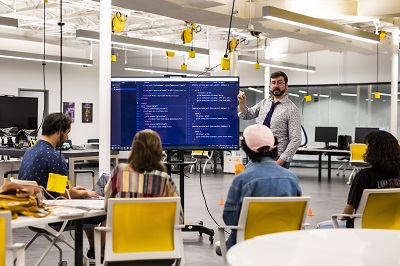For Faculty
UCF is committed to access for students with disabilities. Student Accessibility Services (SAS) is a resource to fulfill this commitment. By partnering with you, we ensure students experience access in their coursework through accommodations or other outcomes.

Essential Information
Purpose of Accommodation Process
What Faculty Need to Know
Accommodation Facilitation
Faculty Resources for Accessible Course Design
Syllabus Statement
FAQs

Knights Access Instructor
View all students who have requested accommodations in your courses, provide SAS your exam proctoring information, and more.

Faculty Resources
Webcourse on Disability Accessibility
Digital Accessibility
Online Course Accessibility
K – 12 vs. Higher Ed Accommodation Differences
